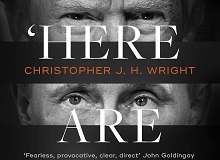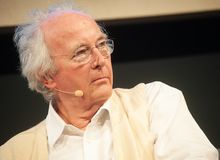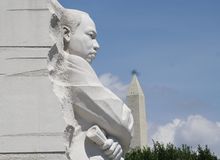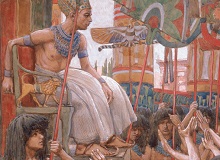


Some Christians are at the forefront of this tribalisation of politics, creating a polarisation of views and eroding the middle ground on which many believers used to stand.

Some of the ethical concerns for Christians surrounding NRTs may not be wholly dissimilar to those faced by Abraham and Sarah.

As Christians, we have a kind of ‘dual citizenship’, being in the world but not of it, with a calling to engage with the world, outworking our heavenly identity. By Matt Ceaser.

The idea of jubilee articulated in the Old Testament points to an entirely different economic model from the one fuelled by debt and interest which financialised capitalism depends on.

As Christians, how can we respond to this generational conflict over the state of our planet? By David Snoswell.

The felt gap between ‘what is’ and ‘what should be’ is a powerful prompt to return to God and cherish the best parts of life—our relationships with others—over other idols.

A focus on generating leaders of character without the safeguards of accountability will fail.

Right now we need to reconnect business to its rightful place within society.

The syncretistic and idolatrous nature of much of Western Christianity is contributing to the ultimate collapse of Western civilisation.

Pullman is cross-pressured: even as he dismisses God and attacks religion, he feels the echo of transcendence.

The focus of this paper is a brief Christian critique of Pullman’s views on religion, especially as he expresses them in his book His Dark Materials.

We are not free to maximise our own pleasure and happiness at the expense of others; such thinking comes not from Genesis 1 but Genesis 3 – it arose from the Fall. Much of the resistance to the reform of capitalism comes from a faulty anthropology.

Mercy is more than offering forgiveness, it includes loving-kindness, pity for those who are suffering and being gracious.

Little has changed in 3,000 years: telling people they’re behaving badly and need to change is never popular.

Christians in business should model a better ‘new normal’ for business. This means intentionally building interconnectedness, interdependence and integrity.

Christian theology offers a cornucopia of ways to engage with social contract theory: to resist it, question it, transform it and improve it.

Ageism was first described in 1968 by psychologist Rob Butler, who predicted it would become nastier when resources are scarce.

In the longer term, pornography can cause the user to view people as objects rather than as whole and complete individuals.

The Year of Jubilee challenges us to think the unthinkable: a hard reset of the economy with forgiveness of the debts accumulated during the crisis.

When it comes to the decisions needed in a world gripped by a pandemic, is there anywhere in the scriptures which casts a more nuanced light?

For Christians readjusting to life emerging from lockdown, we should be seeking the common good by respecting the law and following any guidelines.

This is the time for leaders to step forward, holding firm to their values and communicating them clearly.

The Bible offers not only encouragement for personal faith in a time of crisis, but also wisdom and insight to guide the Christian in a position of public leadership or influence.

Is there a way for us to talk about Christian eschatology that both acknowledges brokenness and affirms goodness?

As technologically simulated relationships become ever more realistic and superficially convincing, we must be aware of the risk that the simulacrum will exert a seductive appeal to our hearts.

Las opiniones vertidas por nuestros colaboradores se realizan a nivel personal, pudiendo coincidir o no con la postura de la dirección de Protestante Digital.